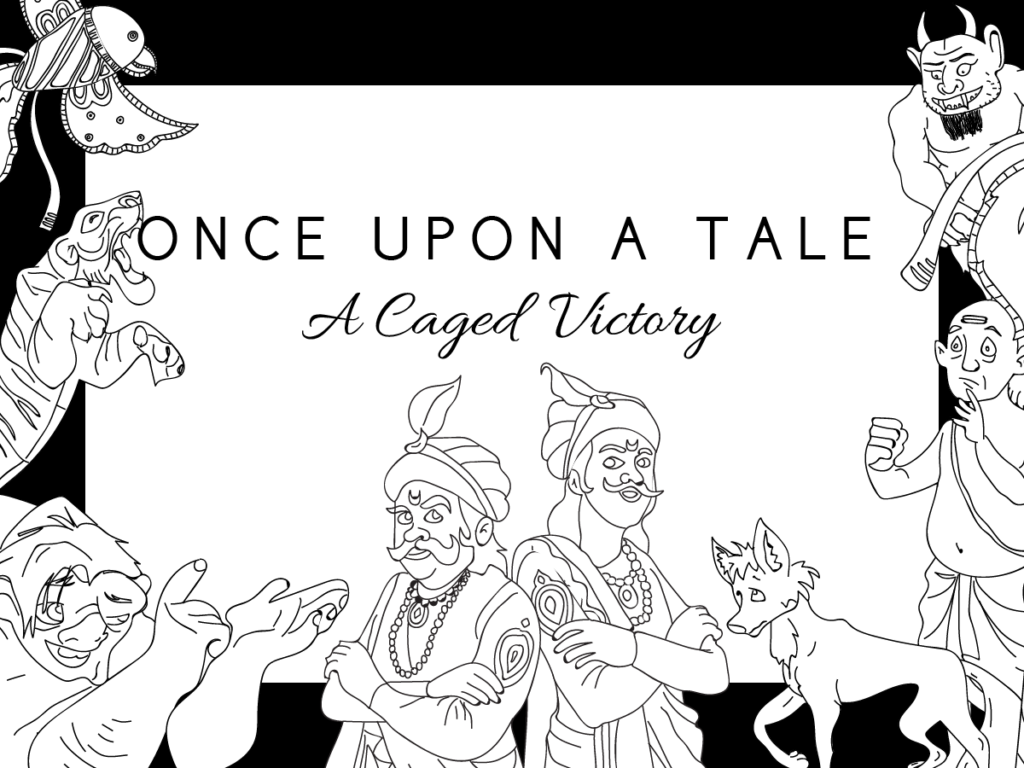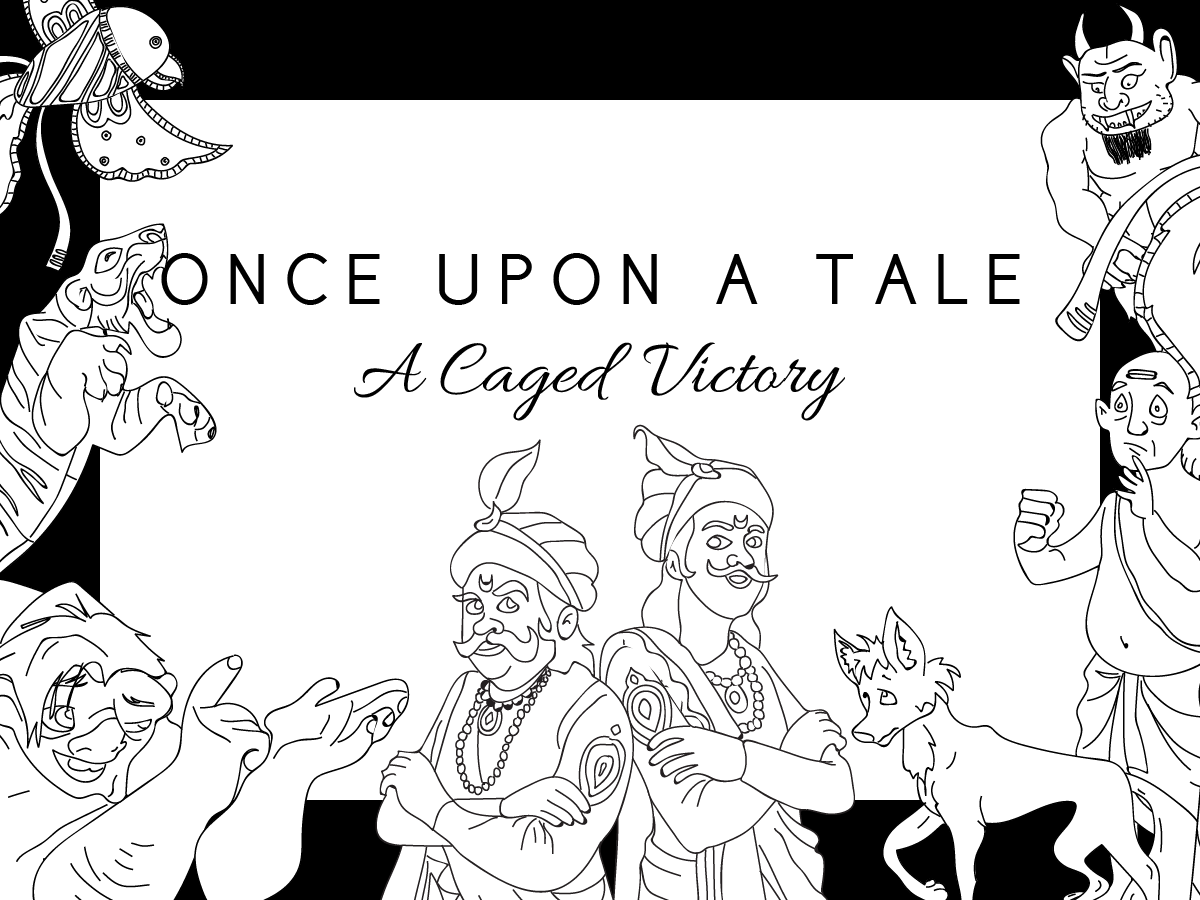
The first thing that struck Brahms was the smell of the air in the room. The air didn’t smell as clean and airy as he had imagined it to be. It smelled like old drafty wood with the faintness of polish as if to mask the musty smell of wherein he was seated. Nevertheless, Brahms could feel the magnitude of the air’s weight on his chest. He desperately tried to hide the beads of perspiration trickling down his skin, hoping he could disguise it as a result of the summer’s fervour. But the man seated diagonally opposite him could see through his act. He flashed a sly smile whose meaning only Brahms knew.
It felt like years had gone by since he found himself in this predicament – every minute seemed like an aeon. Yet only a week had passed since he stepped into what he describes as the claws of a fox.
Everyone in his workspace knew Brahms was a god-fearing man, meek in his ways and movements. He often lived in his peaceful solitude and silence yet paid reverence to all, even to those undeserving few, like the man in front of him called Leo. Leo was the son of Brahms’s boss and an antithesis of Brahms’s perspective on life. For starters, Leo feared no one and especially not any divine entity. He was domineering, did anything to pave the way for his impetuous decisions even at the cost of others, and basked in his vanity. A supercilious youth who knew that soon he would find himself in his father’s chair even though he often rebelled against him. The mark of a pouncing tiger inked onto the side of his neck served as a testament.
A week before anxiety stirred up in Brahms’s chest, he was in a good place in his life. So when a situation arose where Leo needed dire help from someone who ‘holds the entire trust of the company in his palm’, Brahms didn’t give it a second thought. Leo claimed he was getting overwhelmed with the amount of work piling on his desk – ‘the higher the chair, the higher the responsibility’, he often joked. Surely, he never thought twice before flaunting his position and luck as being the son. But Brahms always let it slide and obliged. He was supposed to look at and alter some confidential information files.
“But… should I be doing this? Won’t I get in trouble with Mr. Black?” Brahms inquired. Leo put a cold, reassuring hand on his shoulder.
“Trust me, no one’s gonna know. And you’re helping me, right? If you get through this, I’ll forever be grateful to you. You see this thing’s got me stuck in quite a pickle – a cage if you will. Now I just need someone to help me out of it,” Leo lamented while looking almost forlorn, and Brahms gave in.
Brahms still hadn’t got the faintest idea of how that act of help, born out of the purest intentions, landed him in a trial room. He had charges against him of aiding and abetting in money laundering. He couldn’t understand how that one hour of sitting in a room with a fox in sheep’s skin could lead him to lose about ten years of his freedom. Or even how the rumours of a criminal in the company echoed way before he stepped on this landmine. Yet his resounding proclamations of innocence, although almost futile, had proved enough to stir a little commotion. He later found himself in this small, musty trial room with his lawyer beside him and Leo along with his father and their lawyer. Shifting nervously in his chair, he could feel his boss glowering at him while Leo showed his cunning smile.
Brahms didn’t know much about court proceedings. He could understand that he needed to answer questions when asked and followed some of the conjectures and objections thrown here and there. Still, the working and flow of a proceeding were beyond him. All he knew was what he watched from television, and he never thought he would live one out. Getting a lawyer wasn’t as tedious as it sounded. Finding employees who would willingly stand in favour of Brahms was harder. Almost all the employees, even though familiar with Brahms’s soft-hearted nature, would not go against the holders of the company that they finally made a position in. After all, who would risk their livelihoods for another?
The sad aspect of it was that they were colleagues he knew. One of them was a tall, thin woman in her mid-fifties named Petunia Pipal. She often wore her dark brunette hair in a bun along with floral dresses. Yet, despite the youthfulness in clothing, the wrinkles on her skin gave a hint to her inevitable ageing. When questioned about Brahms’s fidelity to the company, she only said,
“What has he to complain about? He aided in something that would eventually turn on him. Does he expect gratitude for the act he’s done just because it brought us funds?” She says firmly. “I’ve done much more for this company; do you think I get paid equally as a man in the same position? Don’t expect gratitude or pity for the act you’ve done.”
They asked another colleague — Allan Bovine, a rather paunchy and rotund fellow in Accounting. Brahms barely spoke to him, but he would always give a soft passing smile in his direction. He never got one in return.
“Hmph? Brahms? Well, if it’s between you and me, I’ve always found him to be a bit dim in the end. What’s there to help the old fool for something he brought himself into? Take a gander at me. I’ve always shown generosity with my colleagues by bringing them food without being asked, and what did they do to me? Talk behind my back about my demeanour and appearance, call me names around the office. And mind you, illicit activities even to offer help are still illicit activities.”
The third, Andrew Rohdes, said the same with the unvaried reasoning. “I ain’t doin’ it. I’ve neva said no for a job, being recognized or not. Always said yes to everything because I gave heart to this company. Went outta my way. But did I ever get a thanks? Did I ever get that raise I’ve been asking for years? Keep getting em’ rejected,” he says, nearly miserable. He takes a sigh, lighting up a cigarette. “My work’s been always trampled on, and I still never expected anything. So neither should he.”
But one had agreed to come to Brahms’s aid. He didn’t know much about this colleague as well. Almost no one speaks to the janitors save for a friendly conversation or two. So Brahms only vaguely remembered the name Jack Ulrich and seeing him around the office. Either way, he was thankful.
He sat there, the Janitor, with his hands placed on his lap not uttering a word until it was his turn to speak. From across the table, Leo shot Brahms an almost hungry grin.
They began firing questions at Jack, but he only blinked and seemed utterly confused about the whole ordeal. Brahms could feel his heart caught in his throat and kept glancing at his lawyer. Was this the right person to bring?
“Well, this seems to be quite a mix-up, doesn’t it? I’m afraid I can’t answer your questions since I don’t understand the situation. Would you mind telling it to me all over again?”
After another round of explanation, he shook his head almost distractedly. “It’s all going over my head, I’m afraid.”
The vexation was visible on everyone’s faces. Leo rolled his eyes, getting conspicuously impatient and irritated. The judge heaved a deep sigh and addressed the lawyer.
“Are you sure your witness is in a sane sense of mind?”
Jack seemed to take offence. “Well, your honour, I’m a little slow in the head for sure but needn’t you worry. I’ve got my senses. Just explain it to me like I’m five.”
There was a round of awkward glances. Brahms could feel the sweat dripping down his skin, and the hair at the back of his neck rose. It felt as if he were prey in the midst of the tiger’s claws, its sharpened teeth just about to sink in.
Jack’s voice rose slightly. “Dear me, let me look at this again. So, Leo was in his office at around 11 pm-”
“Brahms,” Leo interjected. He was getting visibly agitated with every question. His lawyer then asked him not to say a word.
“Right, right, sorry. So he was there, messing it up with all those forbidden little computer things and…dear me, was it Brahms or Leo? I’m afraid I’m getting slow again.”
Leo was almost about to yell, but his lawyer put a hand to his chest. “Brahms, Mr. Ulrich. Your honour, I’m afraid if this continues we will need to dismiss Mr. Ulrich and his sayings.”
“Of course, of course! I understand, my humblest apologies, your honour. Right, I think I’ve gotten it pretty well now. So Brahms goes into the office in the morning and-”
There was a loud thud against wood. “At night! I called Brahms at night! I should’ve paid you off like the rest!” Leo cried out, finally locking himself in his own cage. A heavy silence followed, ultimately broken down by Mr. Ulrich.
“There, now! That’s what kept getting me so boggled up. I worked the late-night shift that day, you see.”
“Mr. Black, could you elaborate on what you just said?” The judge inquired.
Leo shrunk in his chair. His father’s shock bore down on him. He stuttered and tripped over his own words, unable to speak. Unable to find an excuse that would fit with words. Brahms’s eyes widened as he felt the grasp of the claw loosen. The trial continued; the questioning now turned to Leo, who seemed overwhelmed in the predicament he put himself in. He couldn’t give a right answer, mostly contradicting himself. And just like that, the truth started to slip out.
The proceeding took a long while but ultimately came to its end. Brahms left the building finally savouring the taste of freedom he had longed for. He took a deep breath. The air finally smelled airy and clean.
Written by Bushra Tungekar for MTTN
Edited by Tulika Somani for MTTN
Featured Image by Chirag Bansal for MTTN

Leave a Reply
You must be logged in to post a comment.